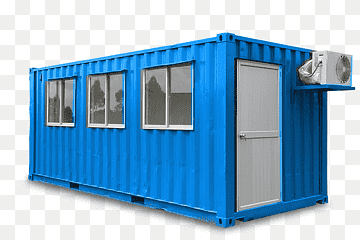Introduction
As global trade expands and cold chain logistics become increasingly essential, the demand for refrigerated containers for sale continues to rise. Whether you’re in the food, pharmaceutical, or floral industries—or simply need temperature-controlled storage—refrigerated containers, also known as reefer containers, provide the perfect solution.
But with so many options on the market, from used refrigerated shipping containers for sale to high-tech refrigerated intermodal containers for sale, it’s important to understand what’s available and which type suits your needs. This guide dives into the benefits, types, and tips for purchasing refrigerated containers, helping you make an informed decision in 2025.
What Are Refrigerated Containers and How Do They Work?
Refrigerated containers, often referred to as reefers, are specialized shipping containers equipped with an integrated refrigeration unit. Their primary purpose is to transport perishable goods that require a controlled temperature environment, such as meat, dairy, seafood, produce, and even pharmaceuticals or chemicals.
These containers come in standard sizes, most commonly 20-foot and 40-foot lengths, and are compatible with land, sea, and intermodal transport systems. You’ll often find listings for refrigerated intermodal containers for sale, meaning these units can easily transition between trucks, trains, and ships without unloading the contents.
Each refrigerated container includes:
- A refrigeration unit powered by electricity or a generator.
- Insulated walls, roof, and floor to maintain internal temperature.
- Temperature control systems for precise cooling or freezing.
- Ventilation options to manage humidity levels.
The ability to maintain consistent internal temperatures from -25°C to +25°C makes reefers ideal not just for transport but also for temporary or semi-permanent storage solutions.
Types of Refrigerated Containers for Sale
When searching for refrigerated containers for sale, you’ll encounter several types, each suited for specific purposes. Here’s a breakdown:
New vs. Used Refrigerated Shipping Containers
If you’re operating on a tighter budget, used refrigerated shipping containers for sale can be a cost-effective option. These containers may have seen service in the shipping industry but are often refurbished to meet functional and aesthetic standards. They’re perfect for businesses looking for affordable cold storage or short-term transportation solutions.
New containers, on the other hand, offer the latest technology in temperature regulation, improved insulation, and extended lifespan. They’re ideal for businesses with long-term or high-sensitivity cargo needs.
Refrigerated Cargo Containers
These are standard reefer containers used specifically for transporting goods. If your business involves frequent imports or exports of perishable products, refrigerated cargo containers for sale are tailored for that purpose. Many come equipped with tracking systems, remote monitoring, and advanced airflow management to ensure product integrity across long distances.
Refrigerated Sea Containers
If your primary mode of transport is ocean freight, consider refrigerated sea containers for sale. These containers are ISO-certified and built to withstand harsh marine environments while maintaining internal climate control. They’re ideal for global supply chains transporting temperature-sensitive goods across continents.
Refrigerated Intermodal Containers
Designed for flexibility, refrigerated intermodal containers for sale are optimized for seamless transitions between different transportation methods. These are perfect for logistics companies or supply chains that rely on a combination of rail, truck, and sea routes. Their versatility ensures goods remain cold and compliant throughout the entire shipping journey.
Tips for Buying the Right Refrigerated Container
Purchasing a refrigerated container is an investment, so it’s important to consider several key factors before buying:
Size and Volume Requirements
Determine how much space you need. For basic storage, a 20-foot refrigerator may suffice. For larger cargo volumes or commercial operations, a 40-foot container provides double the space and often includes additional features.
Temperature Range
Check the temperature range and ensure it suits your product requirements. Some products, like ice cream, require ultra-low temperatures, while fresh produce might need a consistent 2–8°C range.
Inspection and Condition
If you’re buying a used refrigerated shipping container for sale, ensure it has been inspected for rust, insulation performance, and refrigeration unit functionality. Request a full maintenance and service history if possible.
Power Source Compatibility
Verify that the container’s refrigeration unit is compatible with your available power sources. Some require three-phase electric power, while others may come with diesel generators for off-grid use.
Delivery and Setup Services
Many reputable sellers offer delivery, site setup, and maintenance plans. Choose a provider who can support you beyond the initial sale with ongoing service and repair options.
Conclusion
Whether you’re a logistics provider, food distributor, or business owner needing secure cold storage, investing in refrigerated containers for sale is a strategic move in 2025. With rising demand for perishable goods and expanding global trade, having access to reliable cold chain infrastructure is more important than ever.
From cost-saving used refrigerated shipping containers for sale to specialized refrigerated intermodal containers for sale, there’s a solution for every industry and budget. Be sure to assess your specific needs, compare types, and work with a trusted supplier to ensure you get the most value from your investment. Contact us today to find the perfect fit.

